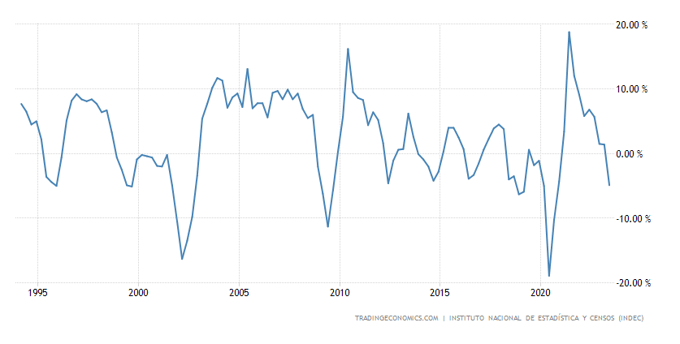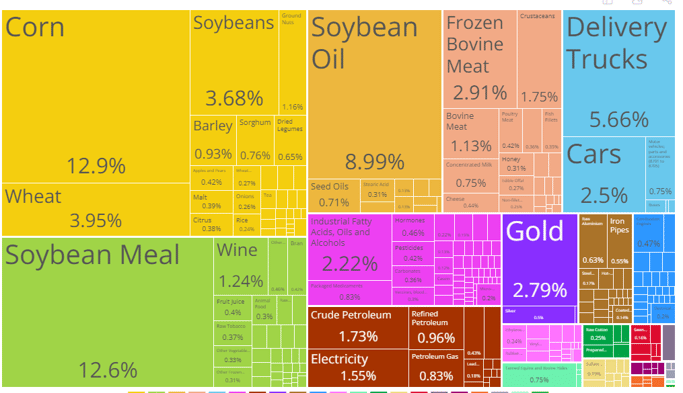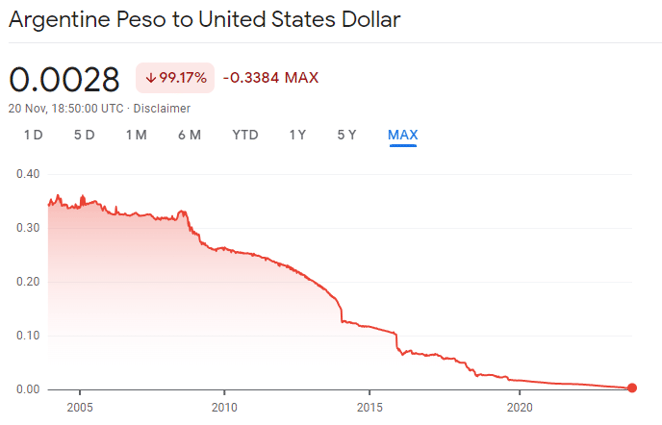Jack Colreavy
- Nov 21, 2023
- 4 min read
ABSI - Argentina’s Economic Experiment
Every Tuesday afternoon we publish a collection of topics and give our expert opinion about the Equity Markets.

Argentina shocked the world last Sunday with the election of their new president Javier Milei, a libertarian outsider with radical ideas for the economically challenged South American economy. The win has been likened to Donald Trump’s 2016 presidential victory in the sense that both candidates were political outsiders, both carried themselves in an unorthodox fashion, and both were elected on extremely new proposals. ABSI this week will outline the platform in which President-elect Milei rose to fame.
The economy of Argentina is the second largest in South America with an estimated GDP of US$633 billion. The country has a wide range of natural resources and agricultural products which dominate its exports to a diverse range of destinations. Interestingly, Argentina has had an extremely volatile economic history marked by periods of prosperity and challenges. Most recently, Argentina experienced strong economic prosperity in the early 2000s, thanks to strong commodity prices, which saw GDP grow at an average of 7.1% between 2002 and 2011.
Argentina's Annual GDP Growth Rate 
Source: Trading Economics
Unfortunately, due to economic mismanagement and the hangover of previously defaulted debt, the country has struggled in the latter part of the previous decade which resulted in hyper inflation and a decimation currency. Today, Argentina’s GDP growth is negative 4.9%, inflation is 143%, interest rates are 133%, and one US Dollar buys ~354 Argentine Pesos. It's safe to say that the Argentine people are demoralised and at a loss on what to do.
Source: Google Finance
Enter Javier Milei. A 53-year former football player turned Austro-libertarian economist and TV pundit with no political experience and a polarising personality. Despite these shortcomings, Milei resonated with the people fed up with the status quo. He ran on a platform of drastic cuts to government size and spending which will allow large tax cuts, as well as shut down the central bank and adopt the US Dollar as the official currency.
While these policies seem extreme, they do have basis in economic academia. Milei is an experienced and educated economist who subscribes to the Austrian School of Economics, a theory that emphasises individual choice, subjective value, and the market as a dynamic process shaped by human action. It advocates for free markets, limited government and a focus on understanding the role of human behaviour and entrepreneurship in shaping economic outcomes.
Argentina Export Profile (2021)
 Source: OEC
Source: OEC
Importantly, while the principles of the Austrian School have influenced economic policy globally, no country strictly adheres to its principles exclusively. Switzerland is probably the economy that reflects the most Austrian economic values, particularly in its approach to banking, which has seen it maintain a relatively stable currency. However, if the newly elected President Milei can follow through on his campaign promises, it will form a very intriguing case study for economists to study in the future.
But therein lies the primary issue. Being President doesn’t provide Milei with absolute unchecked power and he will enter power with a Congress that is highly fragmented. This will likely mean that he will need to temper some of his proposals with various factions in order to push through his legislation and agenda. And with a seemingly insurmountable economic mountain to climb, it remains to be seen whether he can conquer the challenge in time before the next election in four years time.
We offer value-rich content to our BPC community of subscribers. If you're interested in the stock market, you will enjoy our exclusive mailing lists focused on all aspects of the market.
To receive our exclusive E-Newsletter, subscribe to 'As Barclay Sees It' now.
Share Link



-BPC%20Desk%20Note.png?width=767&name=Castile%20Resources%20(ASX-CST-OCTQB-CLRSF)-BPC%20Desk%20Note.png)



